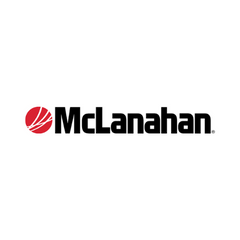The following update is provided by Dairy Management Inc. (DMI), which manages the national dairy checkoff program, is a producer-funded, nonprofit domestic and international planning and management organization responsible for increasing sales of and demand for U.S.-produced dairy products and ingredients.
Report calls dairymen’s heritage as stewards of the land into question
Long before the “green movement” graced the cover of popular magazines, farmers made their mark as stewards of the land.
So when the United Nations’ Food and Agriculture Organization (UN/FAO) report titled “Livestock’s Long Shadow – Environmental Issues and Options” was published in 2006, its alarmist claims stunned the livestock industry.
The report asserted that the livestock sector is one of the top contributors to the world’s environmental challenges.
On the heels of that report, The Lancet, a top-tier medical journal in the United Kingdom, released a series of papers on energy and health, recommending a decrease in the consumption of animal products in order to reduce the effect of livestock production on greenhouse gas emission and “adverse health consequences.”
Initially, the UN/FAO report only generated attention from anti-agriculture groups, but it has gained traction with the media over the past two years, exemplified by high-profile articles in Chicago Tribune, New York Times and “Nightline,” among others.
Reputable companies such as PG&E and Allianz have incorporated the findings into advertisements, leveraging the report’s shock value to gain attention from potential clients.
The joint industry issues management team (DMI, National Milk Producers Federation, International Dairy Foods Association and U.S. Dairy Export Council) seeks opportunities to engage reputable news sources on the positive methods dairymen use to protect the environment on an ongoing basis. Third-party experts are encouraged to write letters to the editor, and dairy farmer spokespersons continue to invite news crews to their farms to showcase the commitment farmers have to protecting natural resources.
Over the last year, an industry-wide Sustainability Initiative was born to ensure the continued viability of U.S. dairy farms by showing their economic, environmental and social value to society.
Should I respond?
Yes. You can help reinforce your commitment to the land on which you depend for your business and quality of life while talking about the rich history of sustainable farming practices on your dairy.
DMI proposes the following ways to respond.
• These reports represent global livestock farming data and do not accurately reflect the picture of agriculture in America. Data from the EPA suggests that the U.S. approach to manure management, livestock grazing and feed is far more advanced than other systems.
• Today’s dairy farmers care for their animals, land, water and air just as generations of farmers have done before them.
• To help grow a healthy farming business for our children to take over, we [insert personal example of sustainable practices, such as no-till farming, waste water recycling, reduced water and energy use, etc.].
Use these key points to help you communicate that the dairy industry continues to study the carbon footprint of dairy and help producers become more energy-efficient: •“Sustainability” means providing consumers with the nutritious dairy products they want in a way that is economically viable, environmentally sound and socially responsible – now and for future generations.
•Dairy farmers recognize the need to identify opportunities to further reduce greenhouse gas emissions. Our industry has embarked on a large-scale initiative to measure the carbon footprint for each stage of milk production and then develop innovative practices to reduce energy use.
Related resources
For consumer-friendly information about how modern dairy farm families care for their animals and protect the land while growing healthy farming businesses for future generations, visit www.dairyfarmingtoday.org. New York Times article on livestock emissions: www.nytimes.com/2008/12/04/science/earth/04meat.html?scp=2&sq=rosenthal%20netherlands&st=cse EPA: www.epa.gov/climatechange/emissions/downloads06/06FastFacts.pdf and www.epa.gov/climatechange/emissions/downloads06/06Agriculture.pdf
Test your answer
Why is the dairy industry working proactively to address the sustainability issue?
ANSWER: Dairy farmers always have been concerned about the land, water and air. We have a rich history of sustainable farming practices on our dairies.
For instance, on my farm, we (insert personal examples of sustainable practices, such as no-till farming, waste water recycling, reduced water and energy use, etc.). The dairy industry’s sustainability initiative will encourage innovation and support real-life practices that are economically viable, environmentally sound and socially responsible.
Dairy producers can benefit economically by identifying future improvements that are right for their business (e.g., changing the lighting in production areas).
Possibilities include:
• Identifying opportunities to reduce energy use
• Using manure management practices to offset fertilizer use in crop production
• Adopting advanced grazing methods and beneficial management practices
• Developing new ways to increase milk production efficiency
• Tapping into new opportunities, such as innovative packaging and products that reduce cooling costs and emissions associated with refrigeration and transportation
• Assessing and testing the viability of methane digesters





